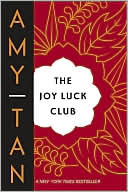banks.of.harle
a journal of sort(ing)s
Sunday, October 17, 2010
2010 Man Booker Prize
Also - congratulations to Howard Jacobson for earning the 2010 Man Booker Prize!
Friday, October 1, 2010
right to choose
I cannot let this week pass without at least tipping my hat toward Banned Books Week.
Wednesday, September 22, 2010
hiatus
As classes have begun and food and sleep are necessities, I must take a hiatus from banks.of.harle.
Cheers for now!
Sunday, August 8, 2010
a merry rant: desperate measures of christianity
Friday night my friend Hannah and I traveled to the wilds of Chattanooga intent on The Book of Liz. When the box-office receptionist informed us that the play was sold-out, we rearranged our plans, ultimately perching ourselves at Rembrandt's Café - a lovely coffee house/bakery in Chattanooga's Art District.
As usual our conversation covered a ridiculous range of topics, from the respectable merits of genre novelists to the Augustinian revival through the Calvinist Reformation (bleh) so that our empty cups and cleaned plates must have collected a bit of dust before we surrendered to the 11pm closing chime.
One topic we wove through considerably is the Christian movement of pop/hipster culture integration (endorsed by the magazine Relevant and movie-theater-turned-church billboards that boast "a different kind of church"). As a student at a Christian liberal arts university, the topic is especially visible and, well, relevant.
Despite the claims of secular cultural integration, secular remains acceptable only when it's made applicable to the religious. This is delusional. No matter how much internal tweaking you do to make out the Gospel of John in Ok Computer, Radiohead in its un-processed form is not made of the same stuff as Christian spirituality.
Reality is a braid of innumerable strands, and one strand does not become more universally prominent by translucently (i.e., philosophically) shading over the others. The 'strand' has to become unavoidable, and ideological rehashing is very, very avoidable.
Anyway, rather than allow internal transformation via secular influence, a "reformed" follower ends up simply filtering for herself the world through already-imbedded religious worldviews, and yet Christians' lack of autochthonous ingenuity legitimizes the secular culture's dominance.
Regardless of ideological foundation, action and creativity are unavoidable forces.
Of course to propel these forces for the good of spirituality they must emanate from a strong spiritual center. Spirituality is essential. But the energy Christians use to prove cultural relevance perpetuates Christianity as a religion that focuses on identity rather than spirituality.
Wednesday, August 4, 2010
book beauty: american sea writing
Wonderful book design effectively shapes the atmosphere of a work. This particular anthology, American Sea Writing, exemplifies that beautifully as the translucent jacket, old-world graphic face and classic cloth spine evoke the organic smell of New England sea.
Published in 2000 by The Library of America
Designed by Bruce Campbell

Sunday, August 1, 2010
response: the joy luck club
The Joy Luck Club collected dust on my shelf for almost a year, but during a wave of hunger for Chinese culture (that has stricken consistently since Shan Sa's Empress), I finally cracked the spine of Amy Tan's 1989 novel. (Penguin Books Ltd, 288 pages)

"I will use this sharp pain to penetrate my daughter's tough skin and cut her tiger spirit loose. She will fight me, because this is the nature of two tigers. But I will win and give her my spirit, because this is the way a mother loves her daughter." Ying-Ying St. Clair, 252
The novel is divided into vignettes, each dedicated to one of eight women - four first-generation Chinese-Americans and their four immigrant Chinese mothers. Opening from the perspective of Jing-Mei Woo just after her mother's death, Tan introduces to the reader the old Chinese women who alternate between Chinese and poor English, wear mismatched clothes and impart superstitious advice, introducing the women through the narrative critical eyes of the typical westerner (such as their prevalently American daughters).
Yet the narrative interweaves throughout the unfolding stories of their youths in China, from exotic adventures of wealth to arranged marriages escaped through clever deceit, and these tiny Chinese women - their complexity formerly veneered by their awkward foreign customs - are revealed as women of regal strengths and arcane depths.
The theme remains wonderfully complex as their daughters are also portrayed with grace and sympathy. Exasperated by their mothers' superstitions and displaced values that are contentious with the American society in which they're expected to succeed, they also earn our empathy as Tan leads us through the unique circumstances of their lives.
In the final chapter, Jing-Mei Woo treks to China with her father, and we see her gaze in astonishment out of a train's window as they ride through the countryside. Looking across to her father who's joyful homecoming tears contrast to her wide-eyed wonder, there's a poetic beauty in both sentiments of parent and child.
The disconnect-yet-enduring-bond between mother and daughter transcends cultural themes. We perceive that as Woo unlocks the beautiful dimensions of her mother that had been distanced farther than the width of the Pacific, so do those dimensions unlock in her own spirit, eclipsing contexts and expectations.
Tuesday, July 27, 2010
just a note: the man booker prize
Longlist released today!
(As an indecisive and slightly obsessive compulsive individual, I like lists.)
Subscribe to:
Posts (Atom)



